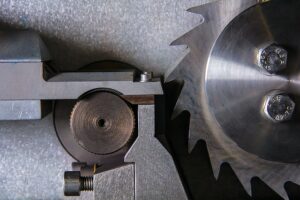RCEP to help PH transform into major manufacturing, innovation hub – PortCalls Asia

With Regional Comprehensive Economic Partnership (RCEP), investors should consider PH as the new innovation and manufacturing hub in the region
Under RCEP, parties will have access to a huge market and major sources of raw materials for production of key products
The recently signed Regional Comprehensive Economic Partnership (RCEP) Agreement will complement ongoing initiatives and reforms to make the Philippines a manufacturing and investment hub, according to the Department of Trade and Industry.
Trade Secretary Ramon Lopez in a statement said the agreement will support efforts to make the country a hub for manufacturing and investment in the region, particularly in the area of innovation technology, while also deepening the Philippines’ economic engagements with its trading partners.
The Association of Southeast Asian Nations (ASEAN), Australia, China, Japan, South Korea, and New Zealand signed last November 15 the much-awaited RCEP agreement after 12 years of negotiation.
Trade assistant secretary Allan Gepty, the country’s lead trade negotiator, explained that under the RCEP agreement, parties will have access not only to a huge market but also to major sources of raw materials for the production of key products ranging from conventional to more intelligent products.
“With this trend, the Philippines’ edge in manufacturing of electronic products coupled with its strong research capabilities and a strong intellectual property regime can boost innovation and production activities in the country,” Gepty said.
In recent years, technology and innovation reforms in the Philippines included the passage of legislation such as the Technology Transfer Act, Philippine Innovation Act, Innovative Startup Act, and Strategic Trade Management Act.
A number of innovation technology and support offices and regional innovation centers across the country have also been established, making the Philippines an ideal place for generating ideas and new products.
“Given the Philippines’ legal and institutional strength in these key areas complemented by its young and dynamic workforce, and the stability and predictability that RCEP offers, investors should now consider the country as the new innovation and manufacturing hub in the region,” Gepty added.
RCEP is one of the biggest trade deals in history, covering a market of 2.2 billion people with a combined size of US$26.2 trillion or 30% of the world’s gross domestic product.
The deal, upon entry into force, will improve market access with tariffs and quotas eliminated in over 65% of goods traded, and will make business predictable with common rules of origin and transparent regulations. This aims to encourage firms to invest more in the region, including building supply chains and services, and to generate jobs.
Once in place, RCEP will account for 27.8% of the world’s trade valued at US$10.5 trillion and 23.6% of global inward foreign direct investments and 33.5% of global outward FDI.
RCEP participating countries accounted for 60.6% of total Philippine merchandise trade and 11.4% of inward FDI in 2019.
